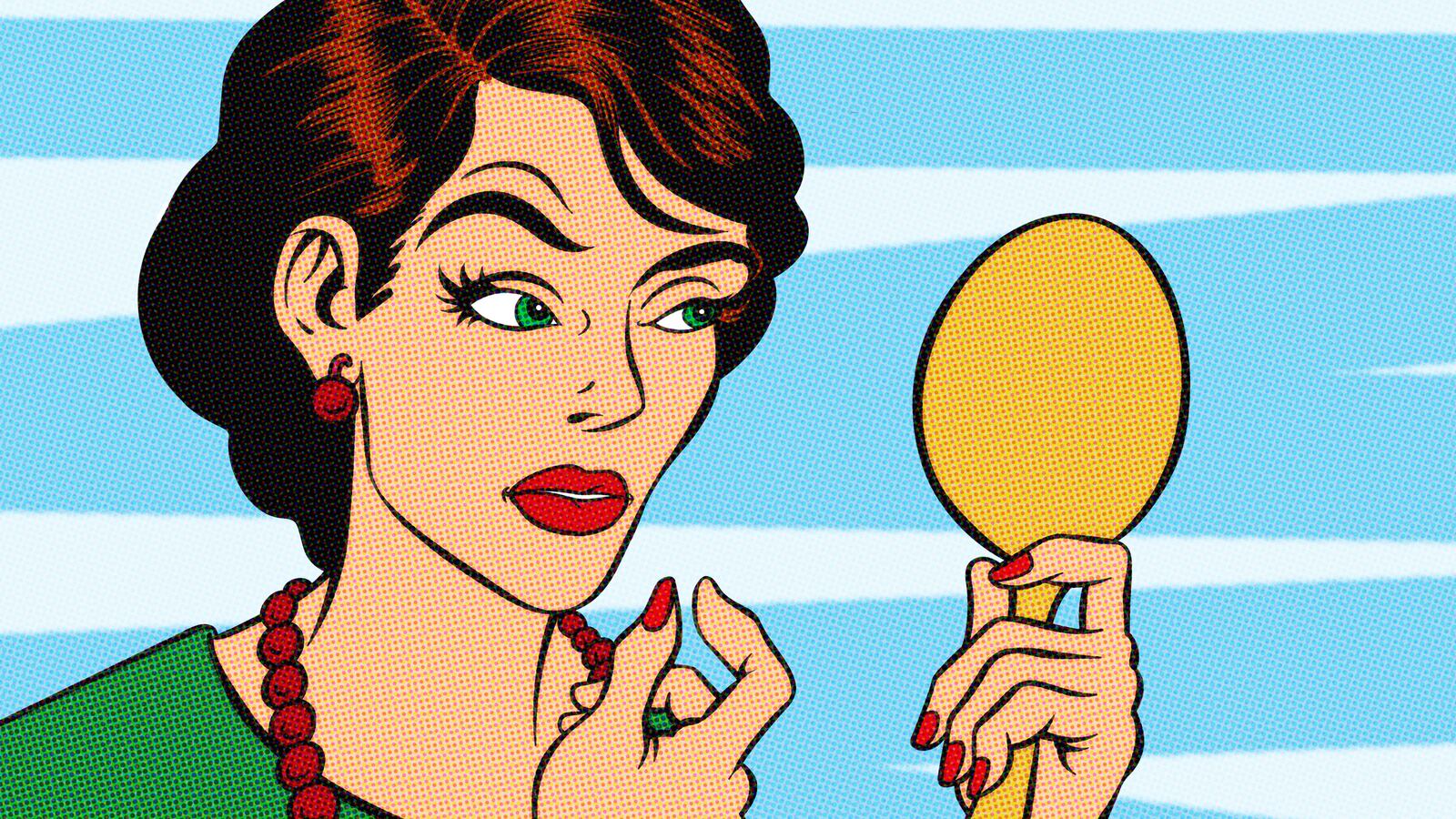Vanity can be good for your health—provided you’re preening in a smart mirror. A new face-scanning gadget can diagnose early signs of diseases from diabetes to heart attack risk in just 60 seconds, forging a new frontier in the rapidly growing field of mobile medicine.
The Wize Mirror is the work of researchers across Europe coordinated by the National Research Council of Italy who, with EU funding, began developing the project. The mirror employs a combination of breath monitors, 3D scanners, video cameras, and imaging systems to analyze the health status of its users. The technology is able to assess changes in the shape of users’ faces, monitor circulation, search for signs of anxiety, and test breath for heart attack-inducing chemicals. Following the minutelong check-up, Wize Mirror produces a health score, as well as personalized advice on how to improve well-being.
“Prevention is the most viable approach to reduce the socio-economic burden of chronic and widespread diseases, such as cardiovascular and metabolic diseases,” the researchers write. “The Wize Mirror detects and monitors over time semiotic face signs related to cardio-metabolic risk, and encourages users to reduce their risk by improving their lifestyle.”
Given that cardiovascular and metabolic diseases are the leading cause of deaths worldwide and affect one in four Americans each year, a means of both home-enabled early diagnosis and monitoring could be key to improving the population’s health and cutting down on wait times and waiting lists for medical appointments. Heart disease cost the American health care system $444 billion in 2010, and with the rate of associated illnesses rising, scaling back both its physical and financial toll is crucial.
The product, which is still in its developmental stages, is one of many new technologies seeking to make the home a primary source of health care. Apps such as Doctor on Demand and Practo facilitate video appointments as well as instant, in-person bookings with practitioners, while medication-monitoring app Insulin Angel and BioSure, Europe’s first legally approved self-testing HIV-kit, mean that illnesses can be both taken care of and diagnosed without the need for professional assistance.
News of the Wize Mirror comes off the back of a recently patented body fat calculator that Samsung is planning to incorporate into its phones. The devices would simply need to be gripped with both hands to activate the sensors, with its bioelectrical impedance registering the user’s vitals. Plans to combine such technology with phones has long been in the works from the likes of Apple, but concerns over creating a chip small enough to fit inside and the efficacy of a monitor not directly placed over the heart have held development back.
When it comes to screen-led diagnostic devices, SenseGlass—a recent venture from MIT’s Media Lab—comes closest to matching Wize Mirror’s functions. Creator Javier Hernandez uses Google Glass to measure emotions experienced day-to-day, registering physiological signals to monitor and measure moods. “The main advantage of using wearable devices is that it offers the opportunity to increase the amount of potential assessments during the day,” Hernandez says. “I believe mirrors are a great platform for health monitoring as we use them every day but their use is still very limited.” Hernandez cites increased motion and illumination changes as some of the most problematic factors for smart mirror technology.
While “there are still some research challenges that need to be addressed,” Hernandez maintains that “continued developments of sensor technology including hardware miniaturization and increased sensor sensitivity have enabled the development of less intrusive methods to monitor relevant health indicators during daily life.
“These advancements have created many opportunities to dramatically improve health monitoring and care delivery,” he says.





